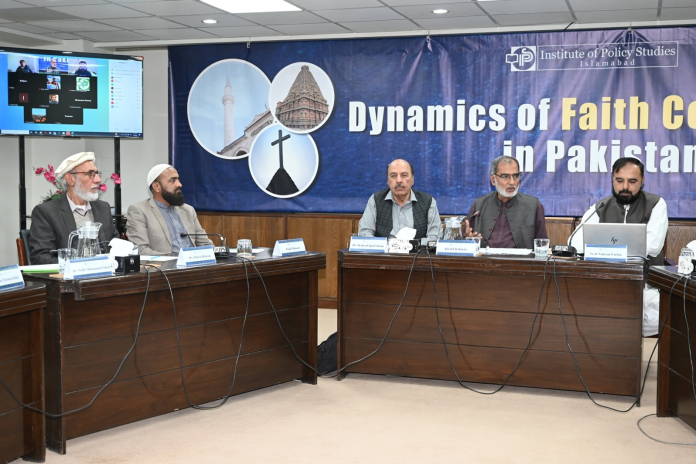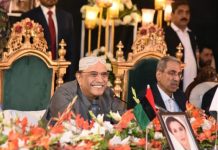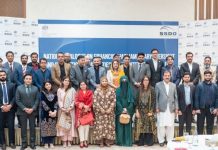Islamabad, Nov 13 (DNA): While the freedom to practice a religion of one’s choice is guaranteed by the Constitution of Pakistan and enshrined in the principles of Islam, allegations of forced conversions to Islam have not been substantiated with credible evidence.
This consensus emerged at the conclusion of a roundtable discussion on the “Dynamics of Faith Conversion in Pakistan,” organized by the Institute of Policy Studies (IPS), Islamabad. The event brought together researchers and scholars from sociology, anthropology, religious studies, and interfaith relations. Six research studies presented during the session provided empirical evidence from Sindh and South Punjab, regions where allegations of forced conversions are most frequent.
Dr Qudsia Firdous of Riphah International University shared findings from her doctoral research, which involved an extensive study of Hindu-Muslim relations in Bahawalpur and Yazman. The perspective she developed after five years of fieldwork involving visits to mandirs, participation in Hindu festivals, and extensive interaction with the community was that both communities live together with “a remarkable degree of harmony.” Her survey of 100 respondents revealed no instances of forced conversions in the study area. An overwhelming majority of the respondents confirmed religious freedom to contradict the popular narrative of systematic coercion and oppression.
Farrah Kashif, representing an NGO that recently published a report alleging forced conversion through marriages in Punjab and Sindh, presented findings based on observations of 15 experts and three survivors. She stated that force was pervasively employed in faith conversions; however, she conceded that often it was not in the typical sense, rather consent was compromised through inducement or duress.
Wajid Mansoor, a doctoral researcher at the University of Karachi, termed the narrative regarding faith conversions as propaganda-driven. “The public narrative developed through media does not represent the ground realities,” he said. Based on 42 interviews with a cross-section of converts, clerics, and community leaders from Sindh, he identified several social factors that motivated conversions among scheduled-caste Hindus. He denied coming across any forced marriage during his field research.
Dr Ghulam Hussain shared findings from research involving data on 6,055 neo-converts to Islam and 110 interviews of converts, their family members, representatives of Hindu panchayats, clerics, lawyers, and law enforcement agencies. After over a decade in field research as an anthropologist, he categorically dismissed claims of forced conversions in Sindh. “These conversions are either willful or caused by several push factors which characterize their former religions,” he emphasized. He noted that conversion of men, women, and families from one faith to another, including faiths other than Islam, has continued in Sindh for centuries, and should not be used for political motives.
Dr Taimia Sabiha of the International Islamic University, Islamabad, also agreed with most researchers while presenting a thesis by Sana Haroon that she had supervised. Describing the conversion patterns of women to Islam through empirical evidence from Punjab and Sindh, she explained that none of the interviewees had converted overnight. “The process always takes months, even years, of contemplation and search to find the purpose of life,” she noted.
Hamdan Ali, from a religious seminary in Sindh where conversions to Islam frequently occur, said clerics take every possible measure to ensure consent. “We involve families, local Hindu leaders, law enforcement agencies, and the court to ensure that every conversion is willful,” he emphasized.
Chairman IPS, Khalid Rahman, summed up the discussion by underscoring the think tank’s commitment to bring forth reality and develop policy narratives grounded in field evidence. He urged religious communities to collaborate in removing misperceptions and eradicating inequalities. “Only a mutually respectful and cooperative environment can ensure the provision of rights and foster a healthy society,” he observed.
Other academics and civil society members who joined the discussion included Prof Dr Shahzad Iqbal Sham, Prof Dr Mustafeez Ahmad Alvi, Sohail Malik, Aliza Mehfooz, Khadija Zahid, Dr Ghazala Ghalib, Dr Zaheer Behram, Ihsan Malik, Dr Abdul Fareed Brohi, Dr Majid Hussain, and Dr Usman Ali Shaikh.

















